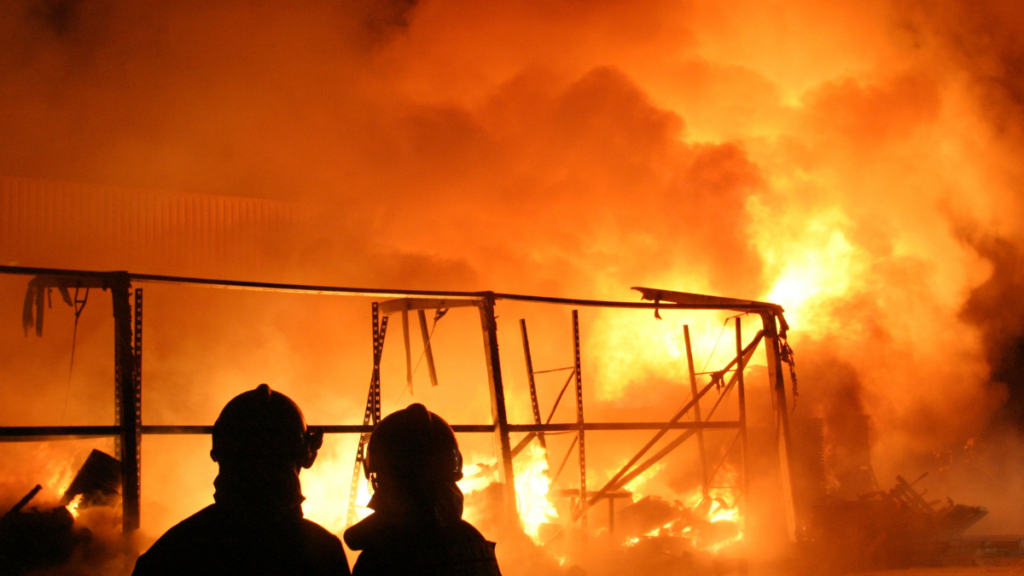In the early hours of March 16th, 2023, a devastating fire tore through an apartment building in Old Montreal, leaving seven dead and many more unaccounted for. As is often the case in tragedies of this magnitude, the incident has become a political football, with various government entities pointing fingers at one another in a bewildering display of buck-passing. But what makes this particular disaster stand out is the role that technology giant Airbnb played in the events leading up to the conflagration.
The question of holding Airbnb responsible for non-conforming properties is a nuanced debate that requires thoughtful consideration of multiple perspectives.
According to reports, close to half of the units in the burned-out building was listed on Airbnb’s platform, some of which lacked basic safety features such as windows. It’s no wonder, then, that both municipal and provincial governments were quick to assign blame, each eager to absolve themselves of any responsibility for the tragedy.
Let’s be clear…
The rise of AirBnB has brought about a fundamental question that continues to spark heated debates amongst policymakers, industry experts, and the public at large. The question is whether AirBnB should be held responsible for loose municipal and city regulations on the property and building non-conformity. It’s a question that goes straight to the heart of what it means to be a responsible corporate citizen.
On one hand, those in favour of holding AirBnB accountable argue that the platform should take responsibility for properties that do not comply with local regulations. They argue that by profiting from the rental of these properties, AirBnB is effectively contributing to the perpetuation of unsafe and non-conforming properties. Furthermore, the increased demand for such properties that may result from the platform’s lack of oversight could drive up prices and exacerbate the problem.
On the other hand, there are those who argue that it’s not AirBnB’s job to police individual properties. They contend that Airbnb is simply a platform that connects hosts with guests and that it’s up to the individual host to ensure that their property meets all local regulations and safety standards. Furthermore, imposing additional regulation and liability on the company could hinder innovation and competition in the hospitality industry, ultimately harming consumers.
So, what’s the solution?
As with most complex issues, the answer lies in striking a balance between competing interests. Airbnb and local governments must work collaboratively to ensure that the platform is used safely and responsibly. Communication, transparency, and mutual respect are key ingredients in this equation. By implementing sensible regulations that address the concerns of all stakeholders, we can ensure that the benefits of AirBnB are enjoyed by travellers and hosts alike, without sacrificing safety or stifling innovation.
I truly believe that the question of whether AirBnB should be held responsible for non-conforming properties is not a black-and-white issue. It’s a nuanced debate that requires thoughtful consideration of multiple perspectives. But with the right mix of regulation, communication, and cooperation, we can strike a balance that benefits everyone involved.
It is noteworthy to acknowledge that the present fire incident is the most fatal in Montreal over the last five decades. It is worth mentioning that a similar event occurred at the Gargantua Bar on Beaubien Street in 1975, resulting in the loss of thirteen lives, as some may recall.




6 Comments
I don’t think the title of your article matches the content lol. Just kidding, mainly because I had some doubts after reading the article.
Lol, no worries. I’m curious, what doubts did you have following your read?
Your point of view caught my eye and was very interesting. Thanks. I have a question for you.
Thanks a lot! Yes, go ahead, would love to hear your question.
Thanks for sharing. I read many of your blog posts, cool, your blog is very good.
THanks! Glad you enjoyed it. Keep providing us feedback, that’s how we’ll get better. Cheers.